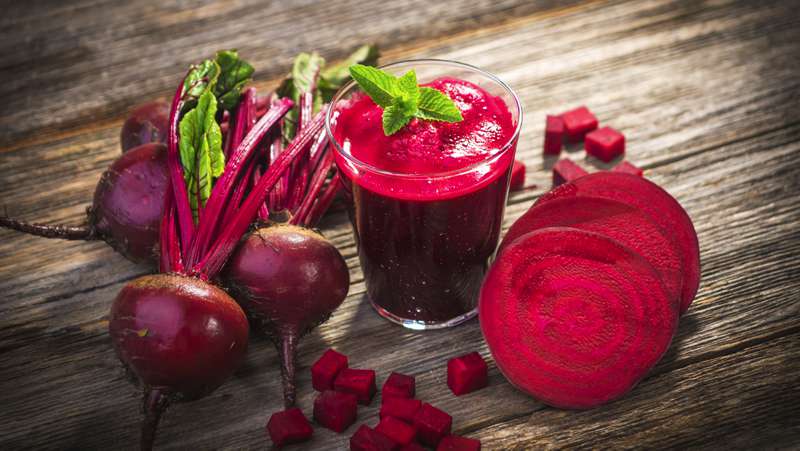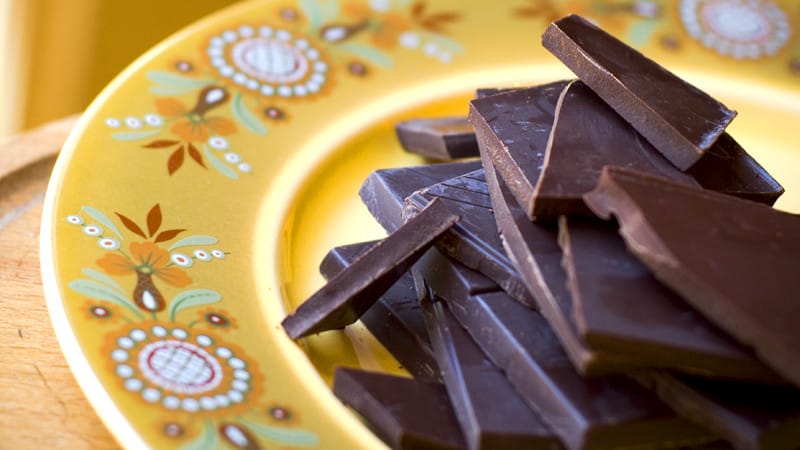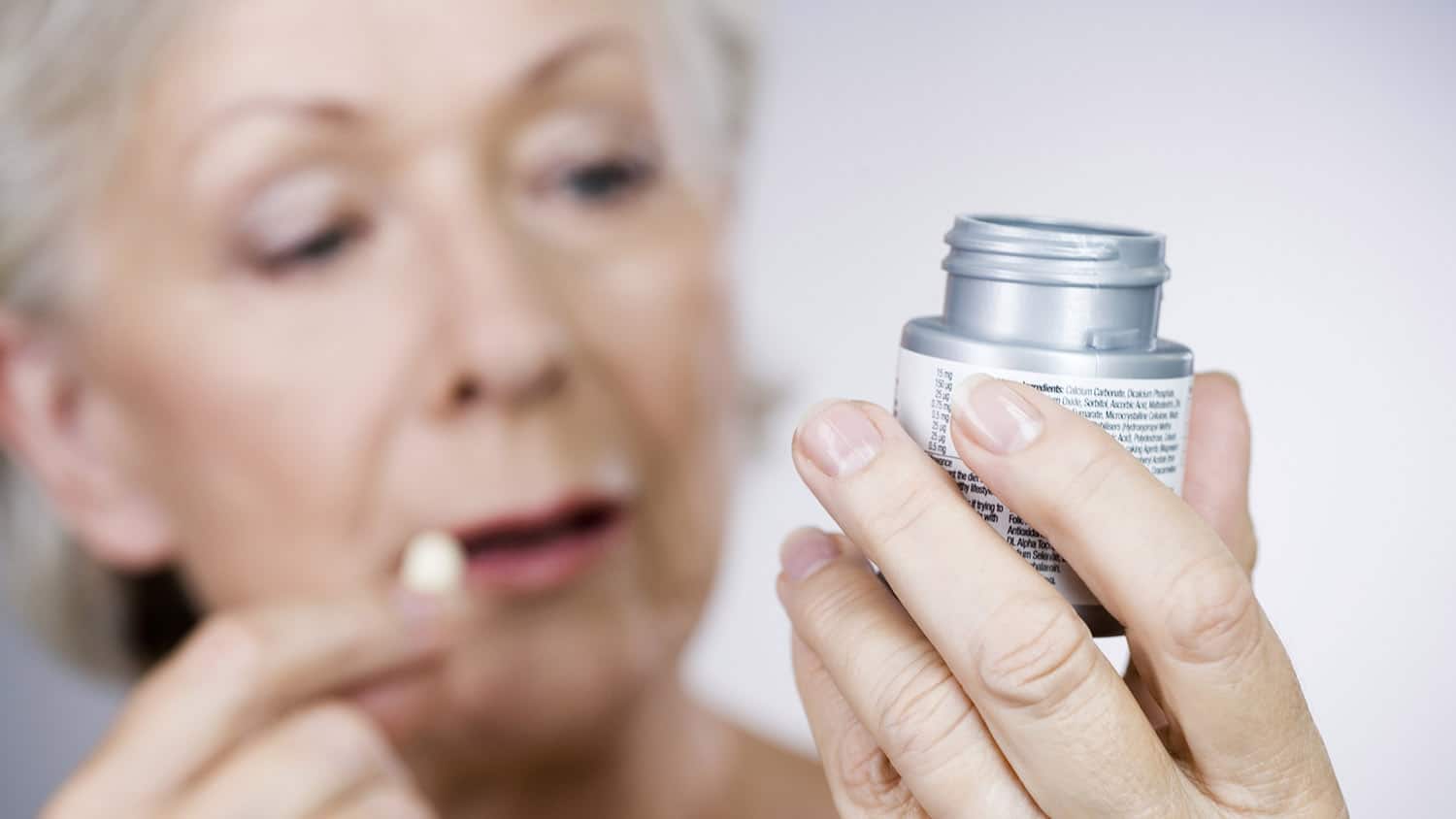10 Ways to Lower Your Blood Pressure Naturally (#6 Is SO Tasty!)
Are you among the one in three adults who have a high blood pressure? If so, taking your prescribed medication every day is vitally important for your long-term health. You probably don’t have any obvious symptoms, but this is one of the most important conditions your doctor will screen you for.
Dietary and lifestyle changes can make a significant difference. Just losing half a stone of excess weight, for example, can bring your blood pressure down enough for your doctor to reduce your medication.
The approaches mentioned here can help too, but if you are on prescribed medication check with your doctor before taking any supplements.
Why Blood Pressure Matters
You need a certain pressure in your circulation to keep blood moving around your body. Your blood pressure naturally varies throughout the day and night in response to your emotion, hormone changes and level of physical activity. When you have hypertension, however, your blood pressure remains high all the time, even at rest. This means your arteries receive a pounding and, if not corrected, can cause damage that increases your future risk of health problems, including heart disease and stroke.
Unfortunately, blood pressure naturally tends to creep up with age due to hardening of the arteries, so that by the time you are 60, the average upper reading (systolic blood pressure) for women is within, or approaching, the range at which hypertension is diagnosed.
Some factors such as smoking, family history, being overweight and drinking alcohol can mean you are more likely to need medical treatment to bring your blood pressure under control.
The stress of having your blood pressure taken by a doctor or nurse commonly causes your blood pressure to shoot up, too. This phenomenon, known as white coat hypertension, is now well recognised, so you will usually have your readings assessed regularly, day and night, over a 24-hour period before starting on antihypertensive medication.
It’s a good idea to use a home blood pressure monitor to assess your readings yourself, too. This has been shown to help improve blood pressure control in people who are already on medication.
Whether or not you are taking antihypertensive medication, several nutrition and lifestyle approaches can help to improve your readings.
Cut Back on Salt to Lower Your Blood Pressure Naturally
Eating too much table salt (sodium chloride) increases blood pressure in people whose kidneys are less efficient at flushing away the excess. This promotes fluid retention and draws water into the circulation so blood pressure rises. Most adults need no more than 6g sodium chloride a day (2.4g sodium) – and would do even better on just 3g per day.
Reducing salt intake involves more than not adding salt during cooking or at the table. Most salt is hidden in processed foods, so check labels for sodium. If the label gives salt content as “sodium,” multiply by 2.5 to obtain the salt (sodium chloride) content. For example, a product containing 0.4g sodium actually contains 1g salt (calculated by multiplying 0.4 by 2.5). In general, per 100g of food (or per serving if a serving is less than 100g):
0.5g sodium or more is a lot of sodium
0.1g sodium or less is a little sodium
Also eliminate high-salt foods such as salted crisps, processed meats (e.g. ham, bacon, salami and hotdogs), cheese, spreads, packet sauces, gravies and ready-meals.
If you’re used to a lot of seasoning, it can take at least a month for salt receptors on your tongue to adjust and detect lower salt concentrations. If food tastes bland, add black pepper, herbs and spices for flavour instead. Adding lime juice helps your taste-buds detect salt better.
Drink Beetroot Juice

Beetroot juice is as effective as some antihypertensive drugs. Its pharmacological action comes from a high content of nitrates which are converted into nitrites by bacteria that live on the surface of your tongue. These nitrites are absorbed into your circulation, where they have a powerful relaxing effect on blood vessels so they dilate and blood pressure comes down.
Researchers have found that drinking a glass (250ml) of beetroot juice every day can lower a high blood pressure by, on average, 7.7/5.2 mmHg, within four weeks, compared with a placebo beetroot juice from which the nitrates were extracted. Benefits are seen within one hour and last for 24 hours later.
Eating 100g cooked or grated raw beetroot supplies a similar amount of nitrates are found in 250ml beetroot juice. Swill the juice around your mouth, or chew beetroot thoroughly before swallowing, to maximise the conversion of nitrates to the beneficial nitrites. Don’t worry if you notice a temporary, red discolouration of urine (beeturia). This can look dramatic, but is harmless!
Follow the DASH Diet to Increase Your Chances of Lowering Your Blood Pressure
The so-called Dietary Approaches to Stop Hypertension (DASH) trials showed that nutritional approaches based on the Mediterranean diet can significantly reduce your blood pressure within eight weeks. The DASH diet essentially means eating:
MORE: fruit, vegetables, nuts, seeds, pules, wholegrains, poultry, fish and low-fat dairy products
LESS: red meat, fats, cholesterol-rich foods and sugary sweets.
This approaches partly works by increasing your intake of potassium, a mineral that helps to flush excess sodium from the body through the kidneys. Potassium rich foods include bananas, avocado, sweet potatoes (with skin), Brussel sprouts, spinach, broccoli, plain low-fat yoghurt, beetroot and beet leaves, celery, beans and lentils, parsley and sage.
The DASH diet is even more effective if you also reduce salt.
Snack on Nuts
Nuts are an important component of the DASH diet, but many people worry about eating them in case they put on weight.
Nuts are a concentrated source of protein and fibre, however, which helps to fill you up. Even though they are relatively high in calories, trials consistently show that snacking on nuts does not mean you eat more calories over all during the day, and people who regularly eat nuts may even lose weight as a result.
At the same time, their healthy oils (omega-3s and monounsaturated fats) and minerals (especially magnesium) have beneficial effects on your circulation. Eating a handful (about 23 kernels) of unsalted nuts a day can improve cholesterol balance, blood pressure and blood stickiness.
Add nuts to shakes and smoothies, sprinkle them over cereals, salads and desserts, and use nut oils in salad dressings. Brazil, almond, hazelnut or almond nut butters are delicious spread on oatcakes. Avoid any peanut butter that is heavily salted, however (check labels).
Eat an Apple a Day… No, Seriously!
Apples are one of the richest dietary sources of a type of antioxidant known as flavonoids. Studies involving over 187,000 health professionals have shown that people who eat four or more apples a week have a significantly lower blood pressure than those who eat less than one a month, on average.
Those eating the most apples also have a 41% lower risk of a stroke than those eating the fewest. Don’t peel them, as this is where most of the antioxidants lie – especially in red apples. Apple peel also contains substances that have a blood-pressure lowering actions similar to that of ACE inhibitor antihypertensive drugs.
Enjoy a Dark Chocolate Treat to Lower Your Blood Pressure Naturally

Chocolate and cocoa are an even richer source of flavonoids than apples. What’s more, these are of a super-protective type known as flavanols, which have beneficial effects on cholesterol balance and blood pressure.
Data from 20 studies, involving over 850 people, has shown that drinking flavanol-rich cocoa can lower blood pressure by 2.8/2.2mmHg compared with a flavanol-free equivalent.
Eating dark chocolate provides even greater benefits. There is clear evidence that eating one hundred grams of dark chocolate (at least 70% cocoa solids) every day can reduce systolic blood pressure by 5.1 mmHg and diastolic blood pressure by 1.8 mmHg – enough to reduce your risk of heart attack or stroke by an average of 21%. Pretty impressive for something that tastes so delicious and is usually considered a treat.
While 100g dark chocolate a day may seem a lot – even for medicinal use – a small bar (say 40g to 50g) is an acceptable amount for most people. One of the few examples of medicine tasting good!
Cut Back on Coffee
This is probably not something you want to hear, but some types of coffee supply medicinal amounts of caffeine. This can cause your blood pressure to rise through effects on your metabolic rate, heart contraction and the way blood vessels constrict or dilate.
Although the effect of caffeine is temporary, it can cause a dramatic rise in blood pressure for some people. One study found that, in men with hypertension, caffeine caused their blood pressure to increase by as much as 10/8 mmHg which lasted for at least one hour.
You may be one of the lucky ones who are more tolerant to the blood pressure raising effect of caffeine. It’s easy to find out – measure your blood pressure with a home monitor after resting and before drinking a cup of coffee. Then measure your blood pressure again after ten, 20, 40 and 60 minutes to see how much it rises, and how long the effect lasts. If your systolic blood pressure (the top number) rises by 5 mmHg or more, then you are sensitive to the effects of caffeine. If so, limit yourself to one cup of coffee a day (or avoid it altogether if your doctor advises).
Meditate Every Day
Meditation is an effective way to relax and bring down your pulse rate and your blood pressure. Transcendental meditation is practiced for 20 minutes, twice a day, and has been found to lower blood pressure on average, by 10.6mmHg in women within three months.
Follow-up studies suggest that people with hypertension who do this are also 30% less likely to experience a fatal heart attack or stroke, too. Mindfulness is another successful approach.
Consider Taking a Magnesium Supplement
Many of the foods within the DASH diet are good sources of magnesium, such as nuts and seeds, dark green, leafy vegetables, beans, fish, dried fruit, wholegrains, beetroot and even dark chocolate.
Magnesium is essential for most metabolic reactions, from the production of energy to the dilation of blood vessels and to maintain a normal heart rhythm and quality sleep. Lack of magnesium is common and can contribute to insomnia, fatigue, cramp, palpitations and a raised blood pressure.
Data from 19 studies involving over half a million people, shows that good intakes of magnesium are associated with a 15% lower risk of heart attack and stroke. Studies also show that taking a magnesium supplement can reduce average blood pressure by around 4/3 mmHg.
Consider Taking a Co-enzyme Q10 Supplement
Co-enzyme Q10 (CoQ10) is vital for energy production in cells – especially muscle cells such as those in your heart, and in your artery linings. It helps to improve the elasticity and reactivity of your arteries so they can dilate to even out blood pressure fluctuations.
Your natural production of co-enzyme Q10 peaked in your 20s and then fell so that, by the age of 60, levels are around half those present in youth. Lower levels mean that cells cannot make all the energy they need and this is a contributing factor to age-related changes such as increasing blood pressure.
In some parts of the world, doctors prescribe CoQ10 supplements to treat circulatory problems such as hypertension and heart failure. Adding supplements to anti-hypertensive drug treatment can produce significant improvements.
In one study of 109 people with hypertension, one in two (51%) were able to stop between one and three of their antihypertensive drugs (under the supervision of a cardiologist) within 4 to 5 months of starting the supplements.
Supplements reduce blood pressure readings, on average, by 11/7mmHg compared with inactive placebo.
Let’s Have a Conversation:
Do you have high blood pressure? If so, what approaches have you found helpful for bringing it down? Do you keep a regular eye on your readings with a home monitor? Research shows this can help you achieve better control.
Tags Medical Conditions








I find a half glass of red wine in the afternoon, beneficial. It reduces my BP to a level that makes my GP smile.
It seems going out in the sun and nature also lower blood pressure. I understand there have been studies supporting this.
I’ve struggled with high blood pressure for years and have done all of the things you list by recommendation that I’ve researched. One factor that I also discovered was that sleep apnea contributes to high blood pressure and a good CPAP that is adjusted well lowers blood pressure when used consistently.